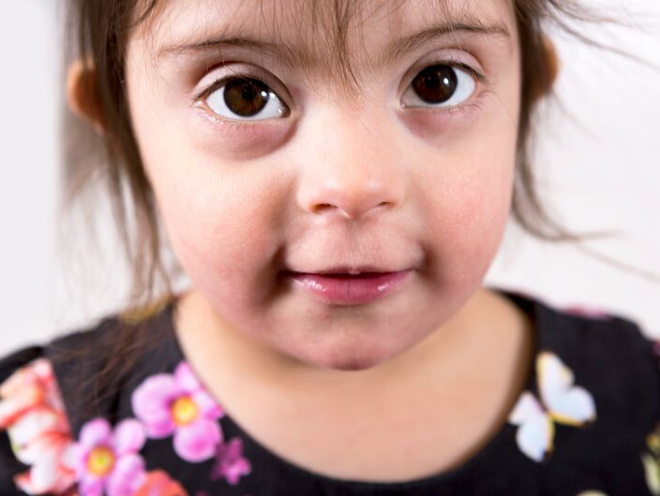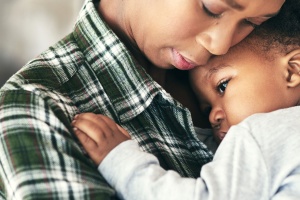If you've recently found out that your baby has Down's syndrome, you may be experiencing a whole range of emotions. There's no right or wrong way to react. And it’s important to know you're not alone in your situation.
Many new and expectant parents find it helps to be in contact with other parents of children with Down’s syndrome. Positive About Down syndrome (PADS) is a support website written by parents of and people with Down’s syndrome. You can read about the reality of living with Down’s syndrome today, as well as being able to contact families similar to yours. You can read Melissa's story here.
Positive About Down syndrome (PADS) can also put you in touch with a local support group. Support groups know first-hand how you might be feeling and can share their experiences with you. They might be able to offer you advice and talk you through any fears or concerns you might have.
The Down’s Syndrome Association can help you connect to other families who have a child with Down’s syndrome too (Down's Syndrome Association, 2021a; Down’s Syndrome Association, 2021b). You can search for more information about Down’s syndrome and about your local support group though the Down’s heart group page.
Down’s syndrome support groups are vibrant, diverse communities. These groups offer fun family activities, including support for siblings, extra professional input and peer support from birth to adulthood.
What professional support is available?
After birth, your baby will have the same needs as every other baby. You can enjoy getting to know them in your first few days and weeks, supported by your midwife or health visitor.
Babies with Down's syndrome may have specific physical characteristics which can impact on their feeding. Heart problems may mean that the baby tires easily when feeding and some babies may struggle to attach to the breast due to the positioning of their tongue (Diamandopolous and Green, 2018). Breastmilk contains antibodies that are important for babies with Down's syndrome due to their increased risk of gastrointestinal infections (White, 2013). Extra support from a breastfeeding counsellor or health care professional after birth may be helpful for successful breastfeeding.
As they grow, there are many different professionals who will be able to show you how to help your child to make progress, including physiotherapists for gross motor skills, such as sitting up, starting solids, crawling and walking. Speech and language therapists can also offer advice on weaning and developing you child’s communication skills and an occupational therapist can help with their development (NHS, 2019).
What can I do to support my child’s development?
You can do so many things to help your child with their learning and development. And remember that not everything you do with your baby needs to be educational or ‘meaningful’.
Things for you to try include:
- praise them when they learn something new
- speak clearly and calmly so they can learn from you
- play, sing songs and read books together to help with sounds and words
- try showing them how to do something instead of just giving instructions – this can be easier to follow
- try ways to help them communicate, such as Signalong, Makaton or PECS
- try to set routines so they feel more settled – for example, for getting up and at mealtimes
- encourage them to be healthy and active – find activities on the Down's Syndrome Association DSActive website
- look out for changes in mood or behaviour – they may not be able to tell you something's wrong or they're unwell
- take them for regular hearing, eyesight and health checks
(NHS, 2019).
Am I entitled to financial support with a child with Down’s syndrome?
Children with Down’s syndrome who need extra care will qualify for Disability Living Allowance. You might also be entitled to Carer’s Allowance and your family might receive additional financial support through Universal Credit.
The charity Contact can advise you on any benefits you are entitled to, as well as help you with form filling (Contact, 2021). Contact also has information about different forms of support, such as social care, benefits and education for people with Down’s syndrome. You could check sources of information in the Down’s Syndrome Association page too.
This page was last reviewed in November 2021.
Further information
Our support line offers practical and emotional support with feeding your baby and general enquiries for parents, members and volunteers: 0300 330 0700.
Make friends with other parents-to-be and new parents in your local area for support and friendship by seeing what NCT activities are happening nearby.
Read more information for new parents on the Down’s Syndrome Association website. To read about one parent's experience of having a baby with Down’s syndrome, here’s Melissa’s story.
Call the Down’s syndrome Association helpline on 0333 121 2300 for advice or the parent-led support organisation Positive About Down’s syndrome.
For more information and advice, read about children and young people's services and assessing your care needs.
Read about special educational needs and children with a learning disability. You can also find out more about education on the Down’s Syndrome Association website and on Down’s syndrome education international.
Contact. (2019) For families with disabled children. Available at: https://contact.org.uk/advice-and-support/benefits-financial-help/ [Accessed November 2021]
Diamandopoulos, K. and Green, J. (2018) Down syndrome: An integrative review Journal of Neonatal Nursing 24(5) https://doi.org/10.1016/j.jnn.2018.01.001 [Accessed 18 November 2021]
Down’s syndrome association. (2021a) For New Parents: Early Years. AvailableDown’s Syndrome Association at: https://www.downs-syndrome.org.uk [Accessed 18 November 2021]
Down’s syndrome association. (2021b) Children, families and education. Available at: https://www.downs-syndrome.org.uk/about-downs-syndrome/lifes-journey/children-families-and-education/ [Accessed 18 November 2021]
Down’s syndrome association. (2021c) Benefits and Finance. Available at: https://www.downs-syndrome.org.uk/about-downs-syndrome/lifes-journey/be… [Accessed 18 November 2021]
Myrelid A, Gustafsson J, Ollars B, Anneren G. (2002) Growth charts for Down’s syndrome from birth to 18 years of age. Archives of Diseases in Children. 87:97-103. https://adc.bmj.com/content/87/2/97
NHS. (2019) What is Down’s syndrome. Available at: https://www.nhs.uk/conditions/downs-syndrome/
White M. (2013) Providing Breastfeeding Support in the Hospital Setting for Mothers Who Have Infants With Down Syndrome. Available at https://journals.sagepub.com/doi/full/10.1177/1941406413496568 [Accessed 18 November 2021]








